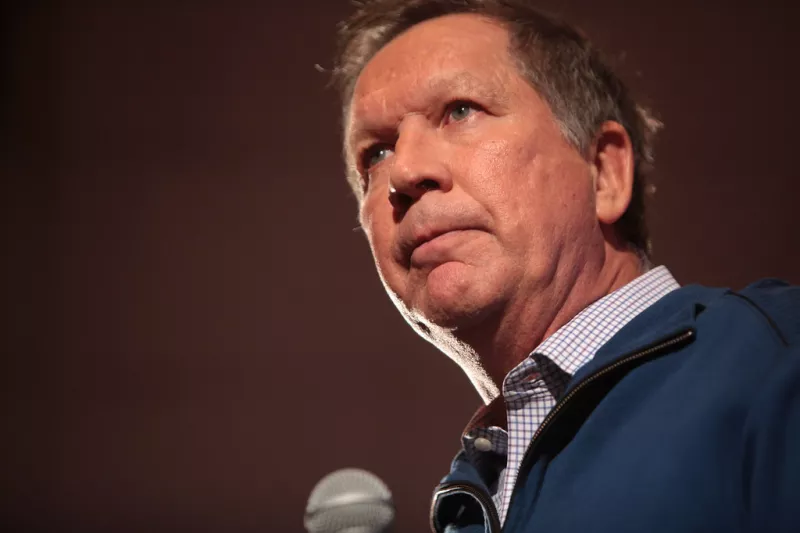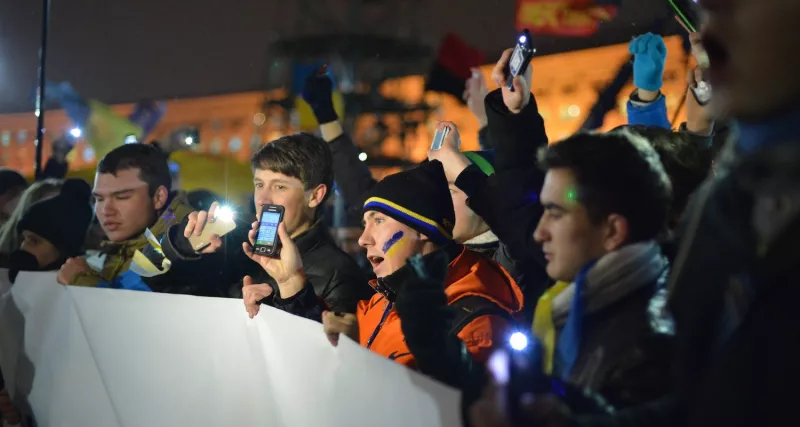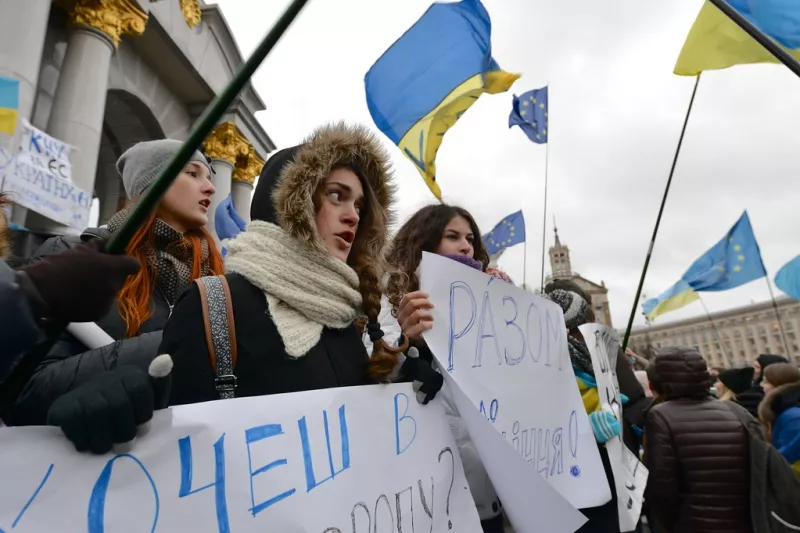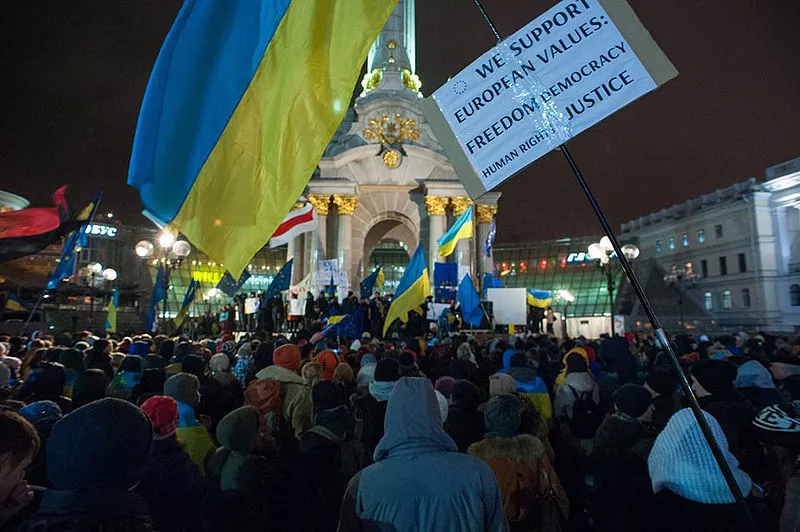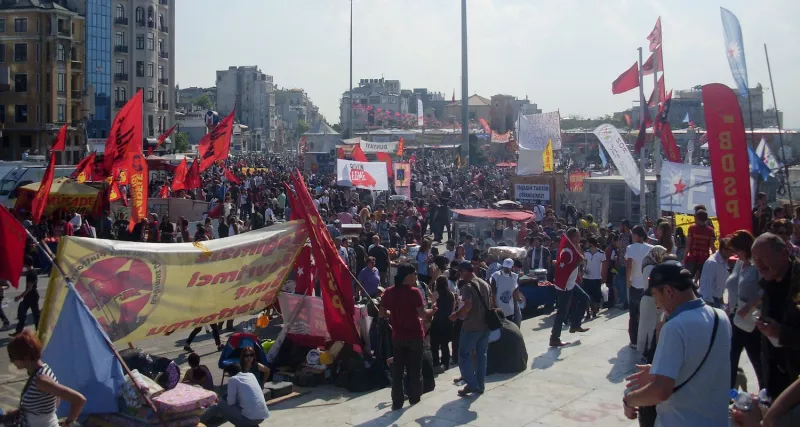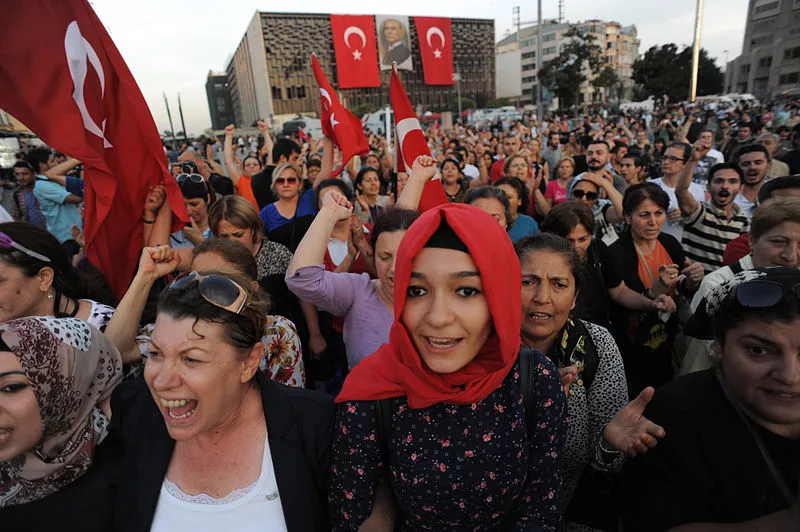Reports & Analysis
CSMAP produces rigorous, data-driven reports and analyses on policy relevant topics.
Search or Filter
-
Analysis
Could Anything – Even Taylor Swift – Boost the Youth Vote in 2018?
Last week, Taylor Swift endorsed two candidates on Instagram, speaking to a group that could use encouragement: young people, who often fail to vote in midterm elections.
October 18, 2018
-
Analysis
Why Don't Trump Voters Feel Betrayed? Because They're Getting What They Wanted.
Our research suggests it might be because Trump is delivering the traditional conservative policies that large shares of his voters wanted all along.
February 1, 2018
-
Report
Your Friendly Neighborhood Troll: The Internet Research Agency’s Use of Local and Fake News in the 2016 U.S. Presidential Campaign
We examine whether IRA-operated Twitter accounts spread polarizing or misleading content on social media platforms in an attempt to influence the outcome of the 2016 U.S. presidential election.
January 18, 2018
-
Report
Syrian Refugee Crisis Data Report
Social media data provides new insights into how the world watches a humanitarian disaster unfold in real time. We analyze Twitter data and find which events grab global attention, how perceptions shift, and whose narratives gain traction.
September 16, 2016
-
Analysis
Here’s What 29 Million Tweets Can Teach Us About Brexit
Britain’s vote to leave the European Union caused a dramatic surge in Brexit-related tweets. Our analysis of millions of them provides key insights into the success of the “leave” campaign, the surprising dominance of economic issues in the online debate, and the referendum’s increasingly global audience.
July 20, 2016
-
Report
Brexit Data Report
What can social media teach us about the motivations of Brexit voters and the global ramifications of the referendum? After analyzing 29 million tweets on the topic, we provide key insights about user views.
July 14, 2016
-
Analysis
Egyptian Elections on Twitter, Far More Interesting Than Egyptian Elections
The meager voter turnout at Egypt's first parliamentary elections since 2012 has been chalked up to apathy and frustration among Egyptian citizens, but an analysis of 500,000 tweets indicates that citizens’ distrust, exclusion and alienation from Egyptian politics is to blame.
December 4, 2015
-
Analysis
This is What Twitter Can Teach Us About John Kasich’s (And Everyone Else’s!) Debate Performance
Did John Kasich’s “grown up” strategy work? Could moderate Republicans be warming to Rand Paul? To answer these questions and more, we analyze 426,717 tweets from the fourth Republican debate.
November 12, 2015
-
Report
The Fourth GOP Debate: Going Beyond Mentions
Continuing previous work, we want to measure viewers' impressions of presidential candidates in real time, specifically around the fourth GOP debate.
November 10, 2015
-
Report
The Third Republican Debate: During and After
We want to better understand how people of differing ideological backgrounds, specifically Republicans and Democrats, respond within and to political discussions.
October 28, 2015
-
Report
The Islamic State's Battle for the Global Twittersphere
Although ISIS continues to spread its message through social media, our data suggests that pro-ISIS communication is met by a much larger amount of anti-ISIS content.
July 27, 2015
-
Report
Tweeting the Revolution: Social Media Use and the #Euromaidan protests
To better understand how social media is used in a protest setting, we collect data from the Euromaidan protests in Ukraine and find that social media provides a space to share information, as well as mobilize offline organization.
February 28, 2014
-
Analysis
Tweeting the Revolution: Social Media Use and the #Euromaidan Protests
Our analysis of Twitter and Facebook data suggests that social media continues to be a pivotal organization tool for those in Kiev and also the most relevant mechanism for disseminating and exchanging information both within Ukraine and abroad.
February 21, 2014
-
Analysis
As Police Raid Protests in Ukraine, Protesters Turn to Twitter and Facebook
Social media continues to play an important role in the protests in Ukraine. As the situation changes, social media users are adapting their strategies online to meet shifting needs as they emerge on the ground.
December 11, 2013
-
Analysis
How Ukrainian Protestors are Using Twitter and Facebook
We collected tweets mentioning the most common Twitter hashtags and available Facebook data of the Kiev protest since the morning of November 25, and found that Ukrainian social media users are strategically using the tools available to them to organize and spread information about the protests.
December 4, 2013
-
Report
A Breakout Role for Twitter? The Role of Social Media in the Turkish Protests
To better understand the effects of collective action and protest organization, we analyze 22 million tweets related to Turkish protests. We find that online activity has a spillover effect into offline action.
July 1, 2013
-
Analysis
A Breakout Role for Twitter? Extensive Use of Social Media in the Absence of Traditional Media by Turks in Turkish in Taksim Square Protests
This trend suggests that Turkish protesters are replacing the traditional reporting with crowd-sourced accounts of the protest expressed through social media.
June 1, 2013
- 1
- 2
